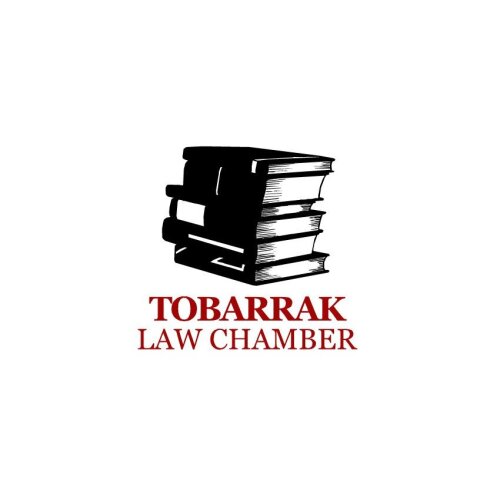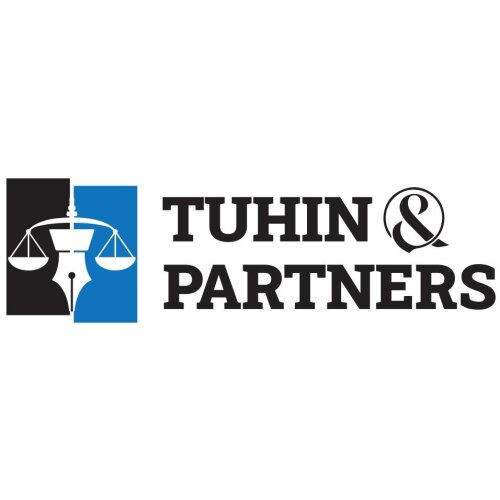Best E-commerce & Internet Law Lawyers in Bangladesh
Share your needs with us, get contacted by law firms.
Free. Takes 2 min.
Or refine your search by selecting a city:
List of the best lawyers in Bangladesh
About E-commerce & Internet Law in Bangladesh
The development of E-commerce in Bangladesh has been rapid, supported by increasing internet penetration and government initiatives to promote digital trade. E-commerce & Internet Law in Bangladesh encompasses a range of legal issues related to online transactions, privacy, consumer rights, and digital contracts. The primary legislation governing these areas includes the Information and Communication Technology Act, 2006, the Digital Security Act, 2018, and the Electronic Transaction Ordinance, 2008. These laws aim to facilitate electronic commerce and ensure consumer protection while promoting information technology.
Why You May Need a Lawyer
Individuals and businesses operating in the e-commerce domain may require legal assistance in various situations, such as:
- Understanding and complying with local regulations and laws related to online business operations.
- Drafting and reviewing contracts, terms of service, or privacy policies.
- Resolving disputes arising from online transactions or breach of contract.
- Handling issues related to data privacy, cyber security, and digital fraud.
- Protecting intellectual property rights, including trademarks and copyrights, in the digital space.
- Defending against allegations of defamation or violation of digital rights.
Local Laws Overview
There are several key aspects of local laws in Bangladesh relevant to E-commerce & Internet Law:
- Information and Communication Technology Act, 2006: This act provides the legal framework for electronic governance, electronic commerce, and data protection. It includes provisions for electronic contracts and digital signatures.
- Digital Security Act, 2018: This law focuses on cybercrime, including hacking, identity theft, and illegal access to information systems. It aims to protect citizens from digital threats and ensure online security.
- Electronic Transaction Ordinance, 2008: This ordinance validates electronic communications, records, and contracts, providing legal recognition to transactions conducted online.
- Consumer Rights Protection Act, 2009: While not exclusively for e-commerce, this act protects consumer rights in all types of sales, including online transactions, ensuring fair trade practices and quality of products.
Frequently Asked Questions
What is the role of digital contracts in e-commerce?
Digital contracts are legally binding agreements created and executed in electronic formats. They play a crucial role in e-commerce by facilitating secure and efficient transactions.
How do I ensure compliance with data protection laws?
Ensure compliance by implementing robust privacy policies, securing user data, obtaining user consent for data usage, and staying updated on legal requirements regarding data protection.
What legal steps should I take when starting an e-commerce business?
Register your business, comply with local e-commerce regulations, create terms of service and privacy policies, and ensure secure payment processing systems.
How can I protect my e-commerce business from cyber threats?
Implement strong cyber security measures, conduct regular security audits, educate employees about cyber threats, and comply with the Digital Security Act's provisions.
What should I do if I receive a fraudulent order or payment?
Review your transaction policies, report the incident to law enforcement if necessary, and consider legal action to recover losses and prevent future occurrences.
Can I sell products internationally through my Bangladeshi e-commerce site?
Yes, but ensure compliance with international trade laws, export-import regulations, and understand any additional tariffs or taxes that may apply.
What are the legal responsibilities regarding consumer rights?
Comply with the Consumer Rights Protection Act by ensuring products are accurately described, honoring warranties, and addressing consumer complaints effectively.
Do I need to comply with specific marketing and advertising laws?
Yes, ensure truthful advertising, avoid misleading information, and adhere to regulations regarding communication and promotions.
How do intellectual property laws apply to e-commerce?
Protect your brand through trademarks and copyrights, and respect others' intellectual property rights to avoid infringement issues.
What actions can be taken regarding online defamation?
If you are a victim of online defamation, gather evidence, report the incident to authorities, and seek legal assistance for possible legal action.
Additional Resources
Here are some resources related to E-commerce & Internet Law in Bangladesh:
- Bangladesh Telecommunication Regulatory Commission (BTRC)
- Ministry of Posts, Telecommunications and Information Technology
- Directorate of National Consumer Rights Protection (DNCRP)
- Bangladesh Association of Software and Information Services (BASIS)
Next Steps
If you need legal assistance in E-commerce & Internet Law in Bangladesh:
- Identify the specific legal issue you are facing and gather relevant documentation.
- Consult with a lawyer who specializes in e-commerce and internet law for tailored advice.
- Consider seeking guidance from legal aid organizations or professionals with expertise in digital trade and online regulation.
- Follow the lawyer's recommendations and take necessary actions to address any legal challenges effectively.
Lawzana helps you find the best lawyers and law firms in Bangladesh through a curated and pre-screened list of qualified legal professionals. Our platform offers rankings and detailed profiles of attorneys and law firms, allowing you to compare based on practice areas, including E-commerce & Internet Law, experience, and client feedback.
Each profile includes a description of the firm's areas of practice, client reviews, team members and partners, year of establishment, spoken languages, office locations, contact information, social media presence, and any published articles or resources. Most firms on our platform speak English and are experienced in both local and international legal matters.
Get a quote from top-rated law firms in Bangladesh — quickly, securely, and without unnecessary hassle.
Disclaimer:
The information provided on this page is for general informational purposes only and does not constitute legal advice. While we strive to ensure the accuracy and relevance of the content, legal information may change over time, and interpretations of the law can vary. You should always consult with a qualified legal professional for advice specific to your situation.
We disclaim all liability for actions taken or not taken based on the content of this page. If you believe any information is incorrect or outdated, please contact us, and we will review and update it where appropriate.
Browse e-commerce & internet law law firms by city in Bangladesh
Refine your search by selecting a city.










